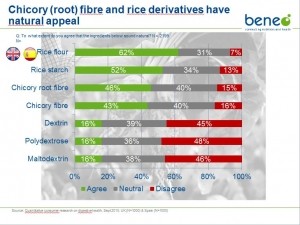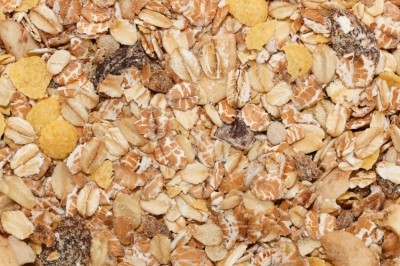Our stool frequency claim may not be sexy – but it adds credibility to empty slogans: BENEO

Last year the European Food Safety Authority (EFSA) okayed BENEO’s health claim application stating: “Chicory inulin contributes to maintenance of normal defecation by increasing stool frequency.”
The article 13.5 claim for the prebiotic fibre – which passed into EU law books on 1 January 2016 – protects proprietary science for five years.
But is ‘stool frequency’ really a phrase you want to see written on your yoghurt pack?
Discussing the results of its consumer survey, BENEO market intelligence and consumer insights manager Myriam Snaet conceded the claim wording wasn’t the easiest sell.
“Indeed it’s not the most appealing claim – but it’s a credible claim. It adds credibility and clarity to what a products means.
“We won’t be recommending this is put in big font [on packs], but it means you can confidently make other claims and not just an empty slogan.”
Instead she said the claim could be translated into softer statements like ‘promotes digestive health’ front-of-pack, with the EFSA claim referenced less prominently elsewhere on the product.
There is yet to be a company brave enough to take up the mantel of BENEO’s claim on pack in Europe, but Snaet said it was currently in confidential talks with an unnamed cereal player.
This would be in line with the survey’s findings about which products consumers already associate with digestive health.
Breaking the fast
An average of 71% of the Spanish and UK respondents said they would find breakfast cereals carrying a digestive health claim appealing.
This was followed by spoonable yoghurt (69%), fruit juices and smoothies (65%), yoghurt drinks (64%), cereal bars (62%), bread (61%) and breakfast biscuits (60%).
Meanwhile over half of the respondents – 58% in the UK and 65% in Spain – said breakfast was the key eating occasion to choose digestion-promoting food and beverages.
BENEO also highlighted the opportunity within weight management.
Just over half of the online respondents cited weight loss as a motivator for consuming digestive health food and drink, while the top reasons were 'overall health' (74%) and keeping their 'digestive system regular' (71%).
“What is so interesting about the weight management results is that digestive health is not just a niche but linked to other trends and for people looking for wellbeing in general,” Snaet said.
“People don’t want bloated, balloon stomachs – especially women, who describe themselves as ‘fat’ when bloated.”
She pointed to an Activia campaign with flat-stomached singer Shakira as a successful example of tapping into this.
“We really think there are opportunities to target a broad audience looking for wellbeing.”
The survey also asked respondents to send in images of weather conditions that best described their perceptions of digestive health along with an explanation. The results showed a spectrum of emotions from positive feelings of ‘comfort’ and ‘lightness’ to negative feelings of ‘stress’, ‘frustration’ and even ‘despair’.
Snaet said the most striking conclusion from this part of the survey was that consumers saw digestive health as constantly changing and therefore requiring daily attention.
Natural-born fibre
Rice flour and starch came out as the most 'natural sounding' fibre ingredients in consumer minds, followed by chicory root fibre and chicory fibre.
“Consumers are looking for clean, clear and transparent labels. They don’t like ingredients that sound like a chemistry set.”
Meanwhile dextrin, polydextrose and maltodextrin came out as the least natural sounding, and indeed when BENEO's ingredient was described as 'chicory inulin' it fared significantly less favourably.
















